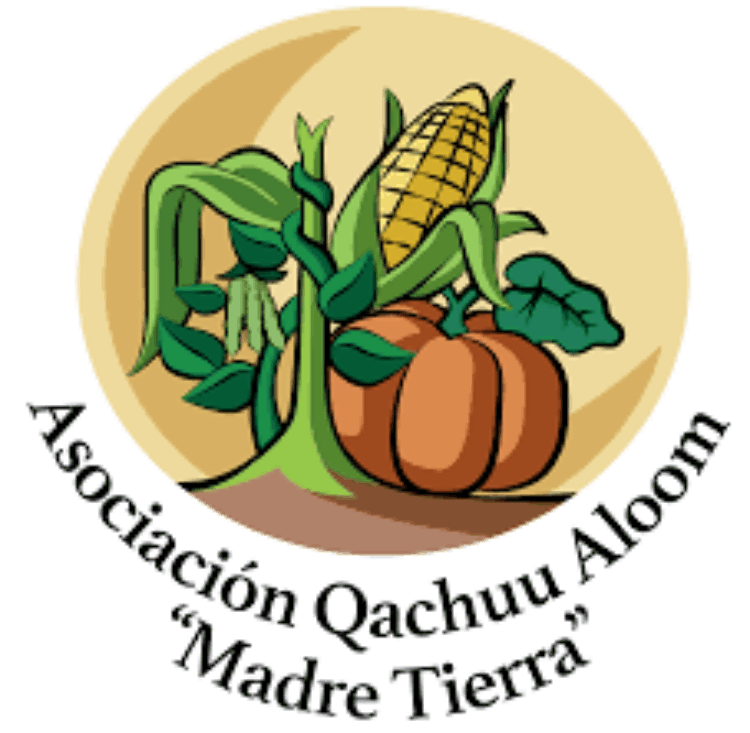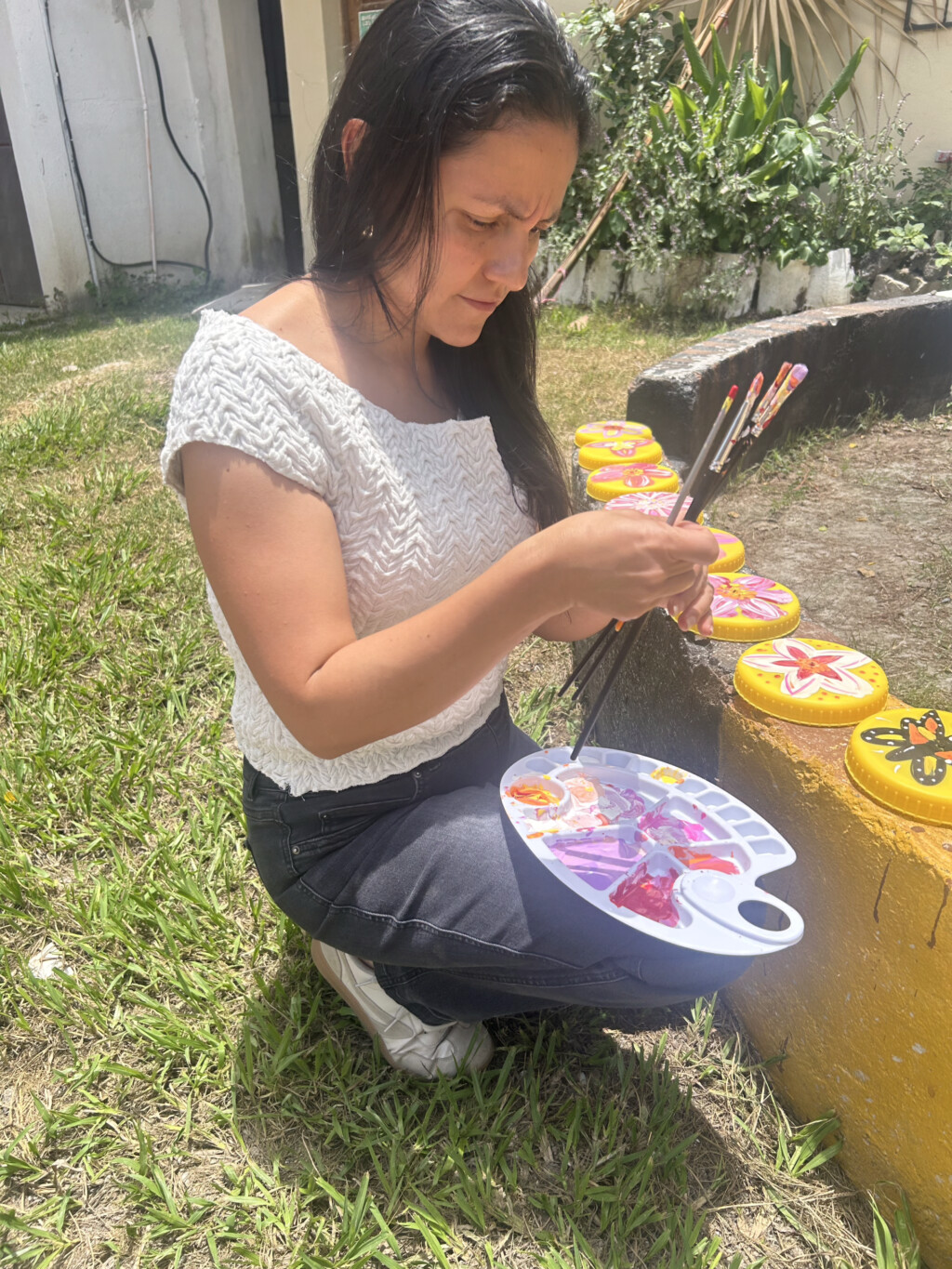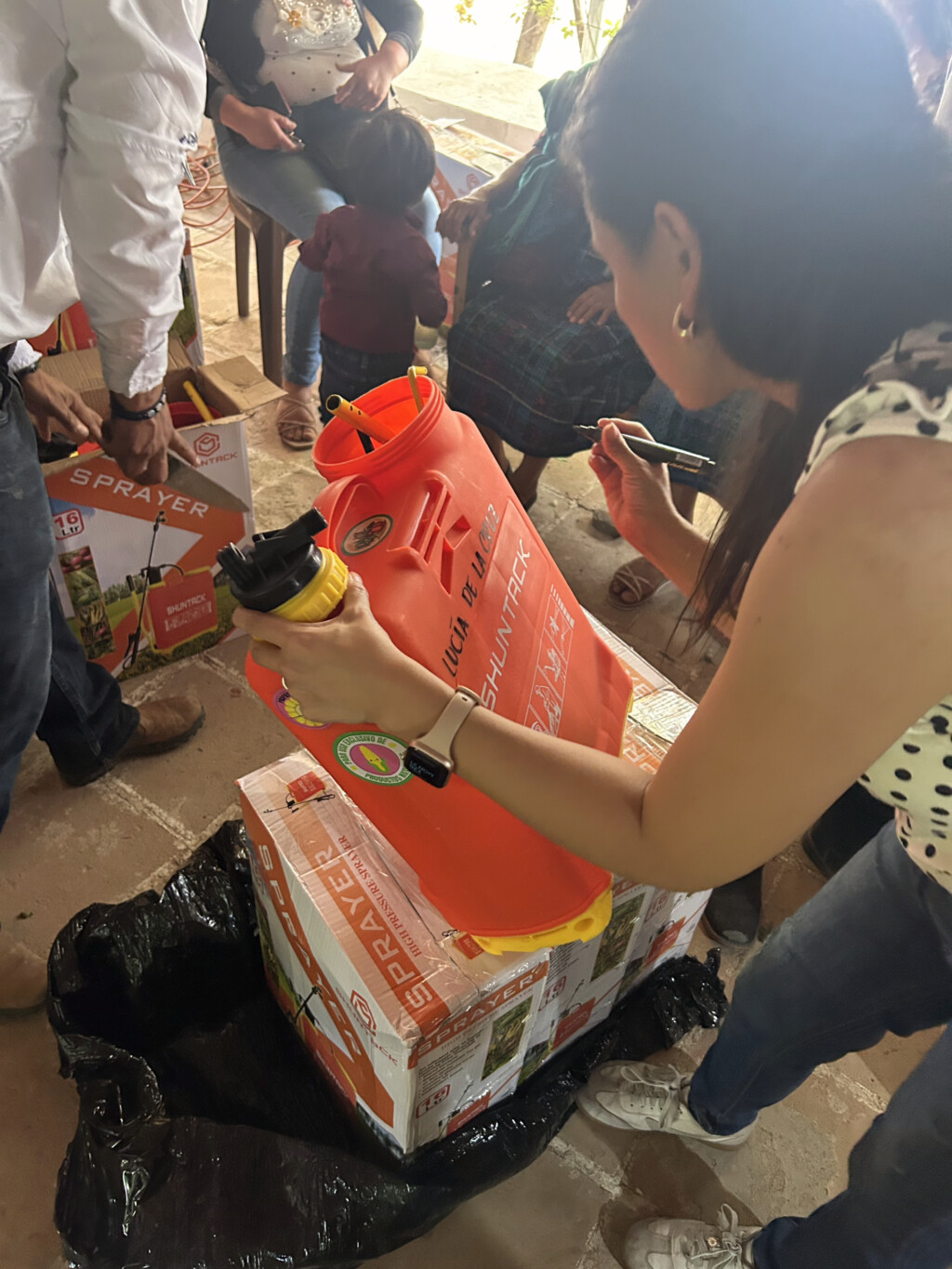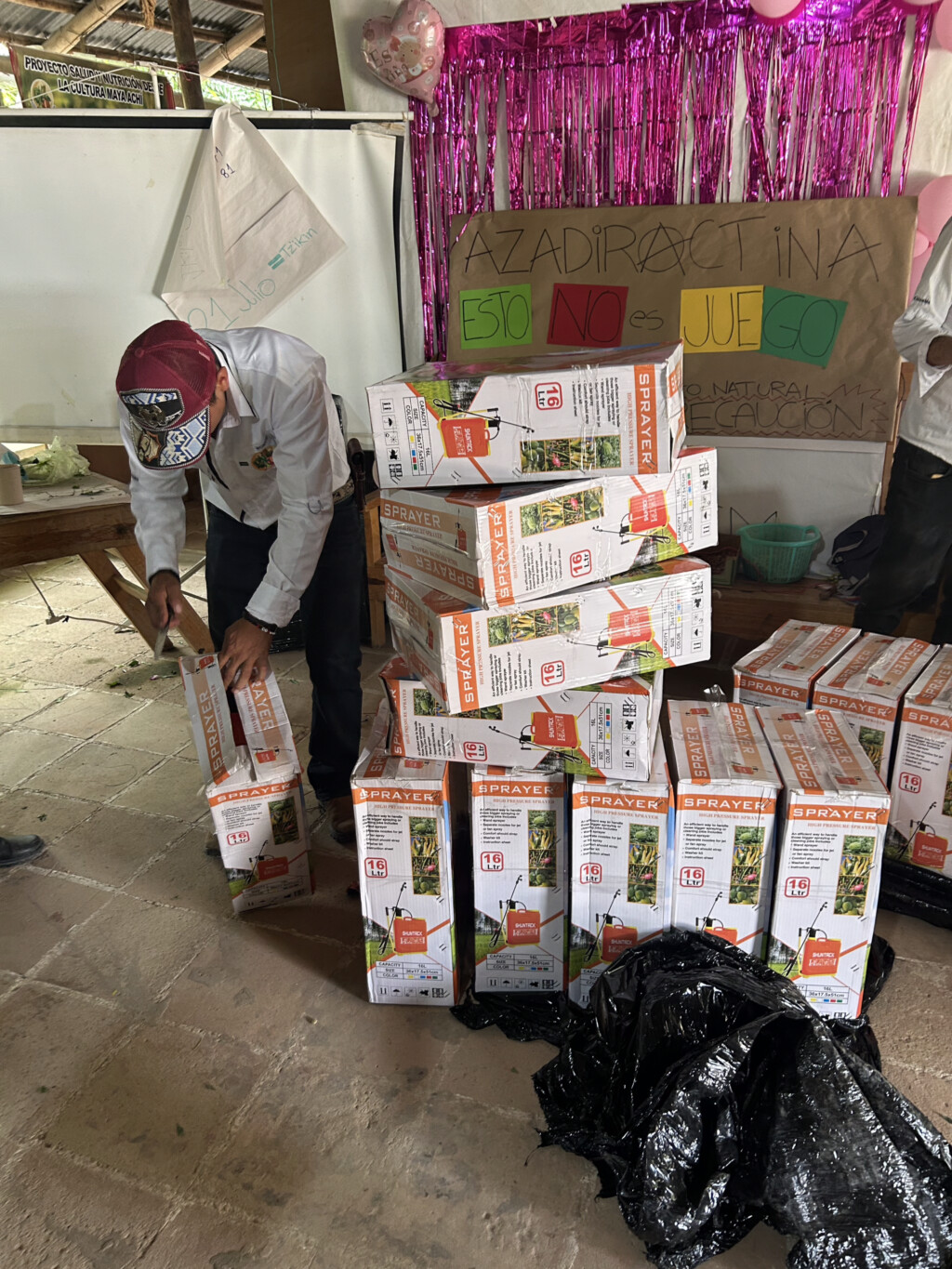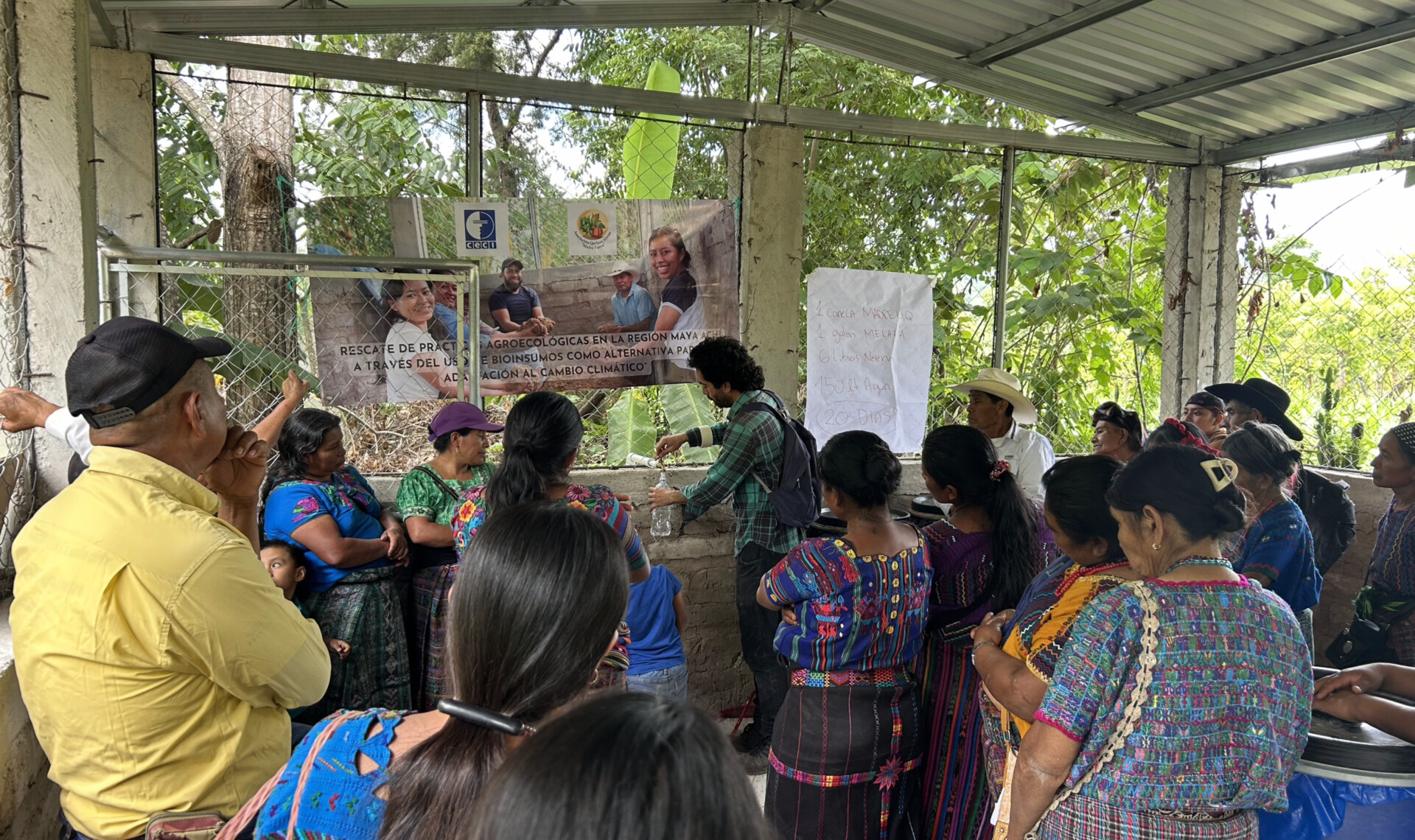
Success story
Cultivating autonomy: Guatemalan women learn toproduce bioproducts to regenerate the land
In the midst of a global biodiversity crisis, marked by the alarming disappearance of species essential to our ecosystems, it is becoming urgent to reduce our dependence on industrial pesticides and insecticides, which not only affect agricultural pests but also destroy pollinators, impoverish soils, pollute water and accelerate the collapse of ecological balances.
In recent decades, rural communities have been encouraged, often by government programmes or international development initiatives, to adopt synthetic fertilisers and chemical pesticides to increase yields. Although these products offer short-term gains, they have contributed to soil degradation, economic dependence and health risks. In response, it is possible to identify accessible and environmentally friendly alternatives to conventional inputs. Mountain microorganisms and neem-based bio-inputs represent viable options that can be easily reproduced at the community level.
Among the mountains and valleys of Rabinal, this concern took shape through a series of agroecological workshops that, from 21 to 25 July 2025, brought together groups made up mostly of women from different communities in the region. Their common goal: to learn how to produce neem-based bio-inputs and mountain microorganisms to strengthen local agroecological agriculture.
The workshop, facilitated by José Miguel Gómez, a trainer from the Qachuu Aloom organisation, highlighted the exchange of knowledge, solidarity and creativity among the participants. The initiative was carried out in collaboration with Qachuu Aloom, a community organisation that works with families to promote agroecology, food sovereignty, seed conservation, sustainable agriculture and women's empowerment. With previous experience in volunteer collaboration, Qachuu Aloom contributed its expertise to carry out this initiative, which was made possible thanks to financial support from CECI.
Climate change adds another layer of difficulty for farming families. Unpredictable rainfall, prolonged dry seasons and rising temperatures are disrupting planting cycles and reducing harvests. For those who depend on traditional systems, these changes jeopardise their food security. These environmental difficulties are compounded by a complex economic context, which limits the options available to women producers. In this project, many women had no knowledge of bio-inputs and were forced to use chemical fertilisers that, in the long term, damage soil health. Faced with these challenges, agroecological practices offer them tools to better adapt by improving soil health, conserving water and increasing biodiversity, thereby strengthening their resilience to a changing climate.
A week of shared learning and community engagement
Some women left their villages at 4 a.m. to attend the training sessions. Some brought their children, who actively participated in various stages of the activity according to their abilities, from sorting leaves to helping mix materials. This intergenerational participation showed that learning about agroecology is not just an individual matter, but a collective and family effort. Rather than acquiring knowledge separately, people strengthen their ability to face challenges and care for their community together.
Participants were invited to share their agricultural experiences in small discussion groups before presenting them to the entire group. These horizontal exchanges allowed them to discuss local crops, the practices used, and the concrete benefits of integrating mountain microorganisms into traditional agricultural systems. Among them, the milpa system—an ancestral method of polyculture that combines corn, beans, and squash—is based on the complementarity of plants to conserve soil fertility and diversify food. Alternative techniques to synthetic inputs were also presented, such as activated microbial solutions and foliar applications such as Bio-Cafrex.
One of the key topics of the workshop was the neem tree (Azadirachta indica), renowned for its natural insecticidal properties. Many women were surprised to discover that this tree already grew in their own communities. The trainers explained how neem leaves can be used to prepare a natural fertiliser and pest repellent that is safe for people, animals and pollinators when applied properly. This finding highlighted the untapped potential of local biodiversity and the importance of reconnecting with ancestral knowledge as a basis for ecological transition.
The process also highlighted the collective knowledge and practice of women: stripping the leaves, removing impurities and useless parts, selecting them by hand and then immersing them in water to extract the active substances. This manual work, carried out in a group and without the need for advanced technology, illustrates a simple and accessible way to revive traditional knowledge. The workshop not only provided technical tools, but also strengthened the empowerment of the participants by valuing the resources and knowledge already present in the community.
From tree to field: making bio-inputs with neem
One of the week's main activities was the practical production of a natural bio-input made from neem leaves. Bio-inputs are natural products made from microorganisms, plants or minerals, which are used to improve soil health, nourish plants or protect crops, all without harming the environment.
The participants began the process by collecting and selecting fresh green leaves, which were then weighed and blended with water to obtain a concentrate. This mixture was stored in plastic containers and later diluted in large barrels with water and molasses, which activated microbial life. After a fermentation process lasting approximately 20 days, the solution was ready to be applied to crops as a fertiliser and natural pest repellent.
Photo : A neem leaf before being transformed into bio-input. Photo taken by: Mohammad Ibrahim, royalty-free image (https://www.pexels.com/photo/neem-leaves-13666672/)
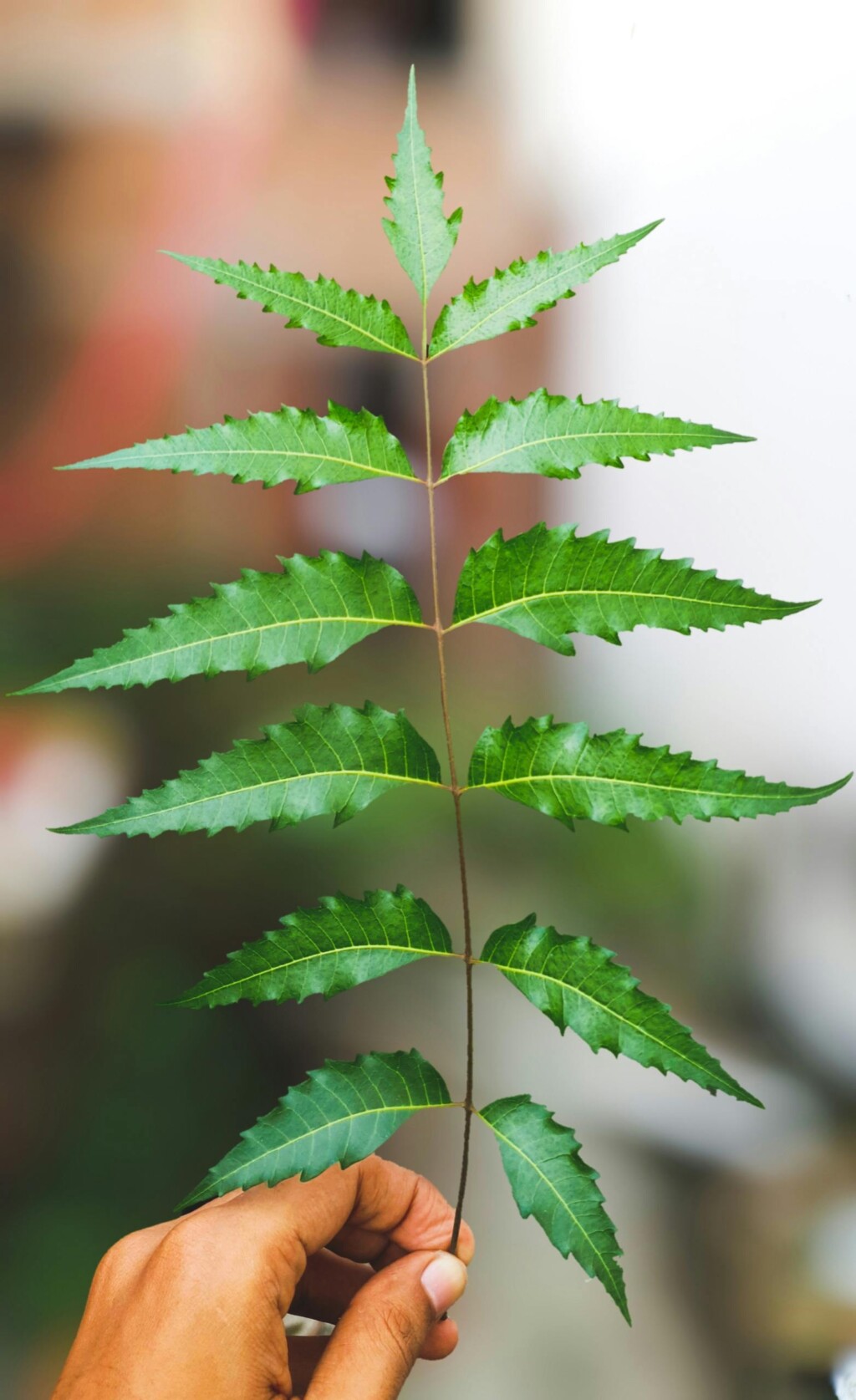
Beyond the technical process, the workshop also served as a catalyst for empowerment. By learning to make their own inputs, many women said they felt more confident in making decisions about their crops, reducing their dependence on expensive products, and sharing what they had learned with others in their community.
Those who attended two or more sessions received a 12-litre backpack sprayer to apply the bio-inputs they learned to prepare. Each sprayer was hand-painted with floral designs and personalised with the participants' names, transforming a functional tool into a symbol of ownership, pride and recognition.
Photos: Wendy Elizabeth De León Samayoa, monitoring and evaluation advisor at CECI Guatemala, labels and decorates the participants' backpacks, while a member of the Qachuu Aloom team helps organise and distribute the materials. Photos taken by : Raphaël Savaria.
This symbolic gesture reflects a key principle of agroecology: the integration of knowledge, care and social value. By offering practical tools and applicable knowledge, the programme paves the way for greater economic autonomy for women and gradually strengthens their ability to participate in decision-making within their communities. By appropriating tools traditionally used by men, they also develop the confidence and skills necessary to pass on this learning and teach others in their communities how to replicate these solutions.
Milpa and resilience: between tradition and modern challenges
In many regions of Guatemala, the milpa system is a viable solution for farming families. It requires few chemical inputs, but involves more manual labour, physical effort and community collaboration.
One of the participants, Fermina García, a woman with years of experience working the land, shared a reflection that powerfully captured the urgency of this transition. She recounted how, in the last two decades, crops that grew easily in her father's time are now barely able to thrive.
“More than 18 years ago, my dad grew very large squash. Now they don't grow like that anymore. But since I started using organic fertiliser, different plants have started to grow. They look bigger and greener. I hope that one day I can harvest squash like my father did.”
His testimony, beyond the personal, expressed a collective concern: the loss of biodiversity, the breakdown in the transmission of knowledge between generations, and the urgent need to regenerate the land so that future generations can cultivate it again.
Towards a culture of agroecological collaboration
Faced with agricultural, social and climate challenges, many of the answers already exist within communities. Faced with agricultural, social and climate challenges, many of the answers already exist within communities. What is needed is time, space and support for them to flourish. This support can take the form of ongoing training, programmes that finance the transition to agroecology, or investments in equipment adapted to sustainable practices. This week of workshops demonstrated how practical, contextualised actions can nourish the land in different ways and lay the foundations for a more just and sustainable future. Qachuu Aloom will continue to promote sustainable practices and support women's communities, as it has done for the past 22 years.
The organisers hope that the knowledge shared will continue to grow, adapt and take root in the territories. Initiatives such as regular community sessions to produce bio-inputs, exchanges between communities and greater access to key plants such as neem reflect the desire to build a culture of shared practices. Women play a central role in this process: through their active involvement, they acquire new tools, strengthen their skills and pass on their knowledge to others.
Through repeated acts of collaboration and learning, communities are not only regenerating their soils, but also rebuilding trust, autonomy and collective strength. The knowledge, tools and connections cultivated during these workshops remind us that lasting change begins from within, and that when communities are supported in charting their own paths, transformation becomes possible.
Our partners
Thank you to our financial and implementation partners, without whom this project would not be possible. CECI's volunteer cooperation program is carried out in partnership with the Government of Canada.

